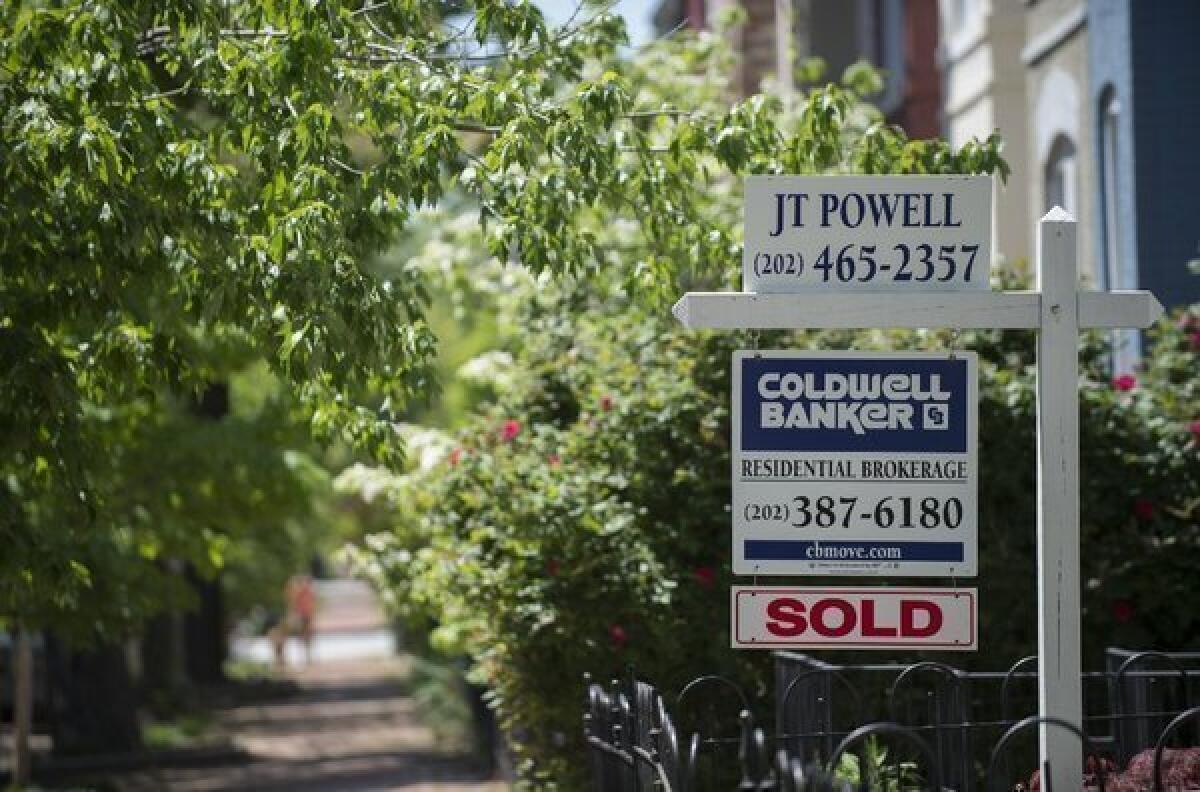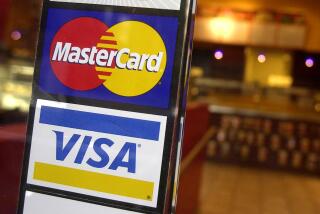What would you pay first: your mortgage or credit card bill?

As home values plunged last decade, troubled borrowers started stiffing their mortgage company in favor of using limited cash to pay down credit cards.
The financial math made sense: When forced into hard choices, why continue to pile money on the deck of a sinking ship?
But that’s changing, a study released Thursday found. It’s the latest sign of an improving housing market and economy that has homeowners again seeing long-term value in their homes.
Financially strapped Americans are now about as likely to fall behind on their credit cards as they are on their mortgage, personal credit-rating company TransUnion said.
“Their home is no longer a liability,” said Ezra Becker, the study’s co-author and a vice president at TransUnion.
In 2009, consumers who held an auto loan, a mortgage and credit cards were 30 days or more delinquent on their mortgages at a rate of 3.83%. The delinquency rate for credit cards was lower, at 2.82%.
Last year, for the first time since the housing crash, those figures were nearly equal, with delinquency rates of 1.91% for mortgages and 1.82% for credit cards.
That’s more in line with consumer behavior historically. The housing crash made consumers put the mortgage bill last because the pride of ownership had morphed into the burden of ownership. Falling housing prices, meanwhile, contributed to rising unemployment -- making some consumers view their credit cards as a survival tool rather than a mere convenience.
Consumers asked themselves: “What am I going to pay? Because I don’t have enough to pay everything,” Becker said.
But now, rising home prices have given many consumers more equity in their homes, a powerful incentive to keep making the payments and watching that equity grow. The fact that financially strapped consumers have shifted toward a more normal “payment hierarchy,” Becker said, is a sign the economy is itself returning to normal.
ALSO:
U.S. housing starts edge up in August, falling short of expectations
Study: L.A., O.C. housing markets ‘overvalued’
Builder confidence on an upswing, but construction lags






